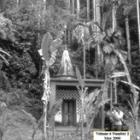Sala, Pere. “Modern Forestry and Enclosure: Elitist State Science against Communal Management and Unrestricted Privatisation in Spain, 1855–1900.” Environment and History 6, no. 2 (June, 2000): 151–168. doi:10.3197/096734000129342253. The subject matter of the paper is the role played by the State Forestry Services in the making of western liberal societies in the 19th century. The Spanish Law of common lands reduction (1855) ordered the Forester Corps (Public Works Department) to prepare a survey of grazing lands, scrublands and woodlands to be sold and the ones to be retained. High mountain zones were excluded from the auctions because of their hydrogeological functions. Villages maintained the ownership of this area, but they lost the traditional autonomous management, which was transferred with sharp conflicts to the new government employees. Nevertheless, the State civil service was not monolithic. The Ministry of Finance encouraged the sale of villages land properties with the aim of repaying the public debt (the State confiscated 20 per cent of value at auction). The Ministry of Public Works wanted to keep public ownership. Forest engineers strongly fought against privatisation in the second half of the 19th century. The author supports the thesis that the New Silviculture reinforced an autonomous trend opposed to unrestricted land privatisation that the Liberal State could not ignore. It was an elitist social-scientific response to the ecological dangers (to be derived from unrestricted free market) with the goals of corporatism and of protecting global society and economy. All rights reserved. © 2000 The White Horse Press
"Modern Forestry and Enclosure: Elitist State Science against Communal Management and Unrestricted Privatisation in Spain, 1855–1900"
Sala, Pere | from Multimedia Library Collection:
Environment and History (journal)


